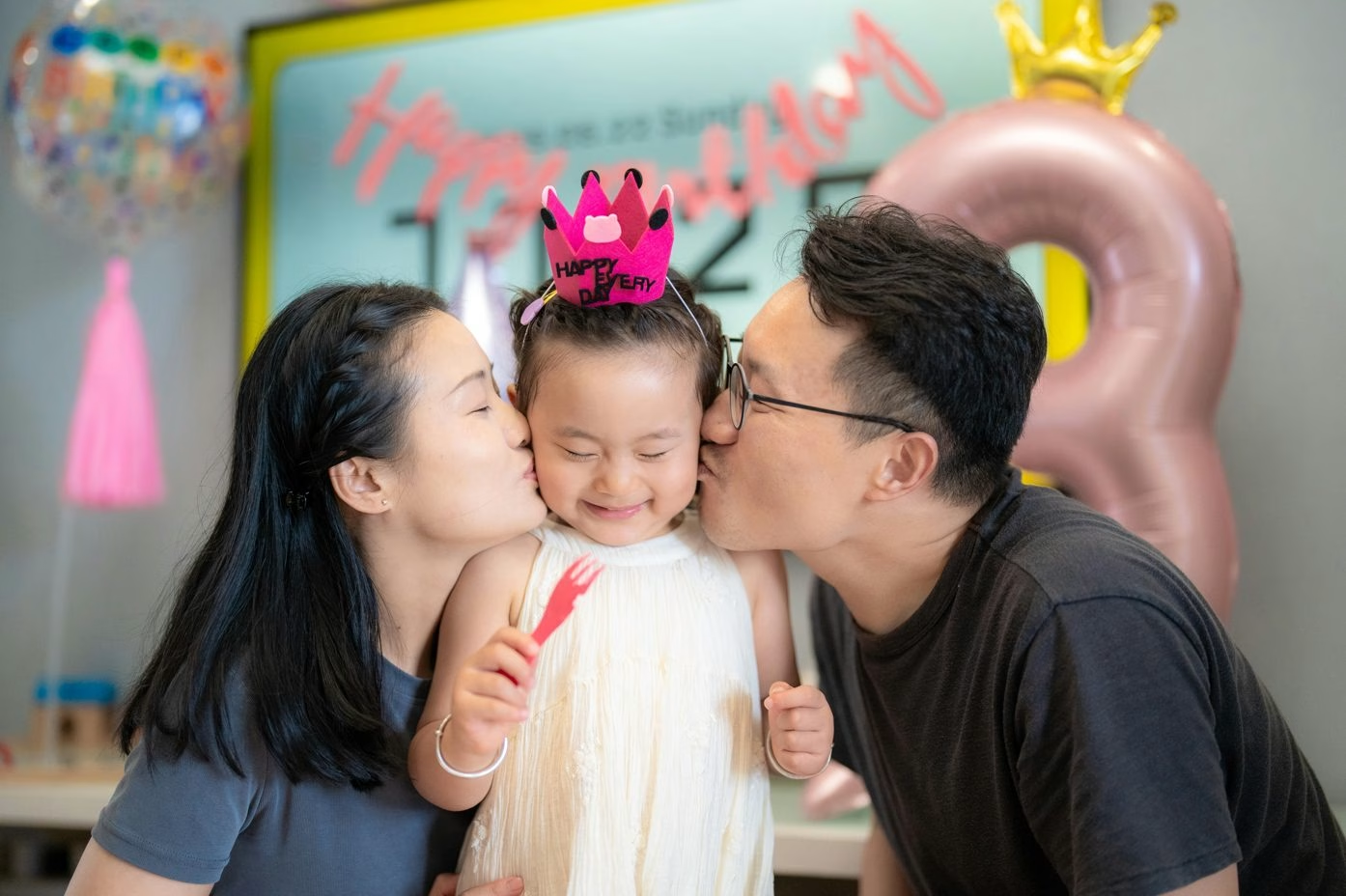In the United States, less than half of all households fit what’s officially considered a “traditional” setup, meaning a married couple raising children together. This also means hosting an Au Pair can look different for each family. For divorced parents who share custody, for example, childcare often spans two homes with different schedules, routines, and dynamics. In these situations, an Au Pair can offer consistent care across both households, making the transition between homes easier for children while supporting each parent’s needs.
Go Au Pair has matched thousands of families with Au Pairs who provide dependable care, cultural enrichment, and the flexibility needed to work within a two-household schedule. Wondering how to make it all work? Below, we’re exploring co-parenting childcare, what divorced parents need to know about sharing an Au Pair, and how to get started.
Benefits of an Au Pair in Co-parenting Situations
For couples who are co-parenting, Au pair arrangements can help bridge the gap between two households, creating a more unified and supportive environment for everyone involved. Some of the main benefits of sharing an Au Pair in these types of situations include:
- Consistency and stability for children: Moving between homes can be an adjustment, especially for young kids. But when children have the same caregiver in both spaces, their routines, expectations, and comfort levels stay more consistent and predictable.
- Personalized, flexible childcare: Au Pairs adapt to your specific schedule and needs, whether that means early mornings one week, after-school care the next, or helping with activities on shared weekends.
- Cultural enrichment and global awareness: Children, no matter what their household arrangement looks like, benefit from exposure to a new culture, language, and traditions, which can expand their worldview and foster curiosity.
- Support for both parents’ schedules: Instead of each parent arranging separate childcare, an Au Pair can work across both households, streamlining logistics and minimizing disruptions.
- Help with household tasks: Light meal prep, tidying up after the kids, or helping with school projects can ease the load for both parents, giving them more quality time with their children.

Understanding Go Au Pair’s Co-parenting Childcare Guidelines
There are no regulations that prevent divorced parents from sharing an Au Pair between two households. But to make it all work, there are important guidelines in place to protect the Au Pair’s well-being, keep things compliant with program rules, and create a positive experience for everyone involved.
Go Au Pair’s co-parenting childcare policies outline how to handle housing, schedules, and communication so both households stay on the same page and the Au Pair feels secure and supported.
Primary Residence Requirement
An Au Pair must have one designated primary residence, which should provide a private bedroom, access to shared living spaces, and a safe, comfortable environment. Ideally, both households should be located close enough to minimize commute time and keep daily transitions stress-free for the Au Pair and the children.
Defined Roles and Responsibilities
Clarity, both in terms of roles and documentation is incredibly important when two households are involved. This includes deciding who will manage the stipend, provide meals, cover transportation costs, and set the Au Pair’s work schedule and duties. We recommend putting everything in writing to help prevent confusion and make sure the arrangement is fair and consistent.
Communication and Consent
Good communication between both parents, the Au Pair, and Go Au Pair’s local coordinator is the most important factor to make a shared childcare arrangement work. Before the placement begins, both households should agree on schedules, expectations, and logistics, and continue with ongoing check-ins to make it easier to address small concerns early on.
Ensuring the Au Pair’s Well-Being in Co-parenting Arrangements
While most Au Pairs adjust well to non-traditional family setups, making sure they feel safe, supported, and uninvolved in parental disputes is essential. Remember: their role is to care for the children, not to mediate between parents. This means that clear boundaries and proactive communication go a long way in creating a healthy environment for all. Consider the following:
Setting Clear Boundaries
Agree from the start on what the Au Pair’s role covers and what falls outside their responsibilities. They shouldn’t be asked to relay messages between parents, take sides, or comment on parenting decisions. Each household should maintain its own direct communication with the other parent, so the Au Pair can focus fully on childcare and household duties.
Conflict Management and Prevention
If disagreements arise, keep the conversation between parents and avoid involving the Au Pair, even if the dispute is related to childcare. In cases where conflict begins to affect the Au Pair’s comfort or ability to work, contact Go Au Pair’s local coordinator immediately for support and mediation. Should challenges persist, a rematch can be considered to protect the Au Pair’s well-being and maintain a safe, productive childcare arrangement.
Real-Life Success Story
When A. and E. divorced, they worried how the change would affect their 7-year-old daughter, N. Splitting time between two homes was an adjustment, until they matched with Sofia, an Au Pair from Germany through Go Au Pair.
With a shared schedule, consistent rules, and open communication, Sofia became a steady presence in both households. N. knew who would pick her up from school, bedtime stories stayed the same, and Sofia’s German songs became part of family life in each home. For A. and E., that consistency brought peace of mind and made the transition between homes much easier for their daughter.
FAQ: Au Pairs for Divorced Couples
Co-parenting childcare arrangements can give kids the consistency they need to feel more grounded after a divorce. Here are answers to some of the most common questions parents have about sharing an Au Pair between two households.
How is the schedule managed?
To manage the Au Pair’s schedule, both parents typically work with the Au Pair and Go Au Pair’s local coordinator to create a clear calendar that covers each household’s needs. Consistent communication helps keep the arrangement fair and predictable.
Who is the official Host Family?
If divorced parents are sharing an Au Pair then Go Au Pair policy requires the mother and father both be listed on their account. If there are step parents they will also be listed as adults living in the home. Parents will need to provide addresses for homes the Au Pair will reside in and both homes will require an in home interview and tour from the Local Area Representative. Parents will need to decide how stipend is paid and how room and board will be shared and share that information with Go Au Pair. Parents are welcome to decide to have one home be the primary home but if the Au Pair is residing in both homes a private bedroom for the Au Pair will be required in both homes.
What if conflicts arise between households?
If disagreements occur, both parents should involve the local coordinator early to discuss solutions. In rare cases where issues can’t be resolved, a rematch with a new Host Family may be considered.
Start Your Co-parenting Childcare Journey with Go Au Pair
For separated parents and families with non-traditional setups, splitting an Au Pair offers both parents dependable childcare while giving kids the comfort of a familiar caregiver in each home. With Go Au Pair, you can match with someone who adapts to your schedule, respects each household’s rules, and brings enriching cultural experiences into your children’s lives.
Browse Au Pair profiles today and see how Go Au Pair can help your co-parenting arrangement thrive.



